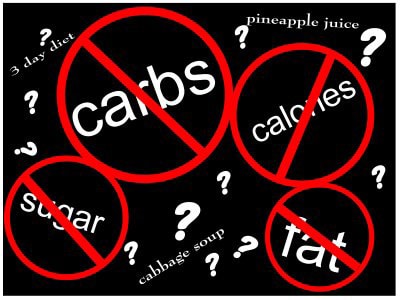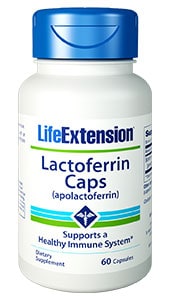In discussions about dieting, a topic that often comes up is that of “cheating”; is it good or bad to cheat once in a while during a diet?
In order to answer this questions appropriately, it is necessary to look at both the quantitative and qualitative aspects of dieting, and the physiological and psychological responses they each elicit.
Dieting – what are we really talking about?
The dictionary definition of “diet” and “dieting” is “to eat and drink sparingly or according to prescribed rules” or “a controlled intake of foods, as for medical reasons or cosmetic weight loss”.
However, these definitions do not tell us anything about the two different aspects of dieting; the quantitative and qualitative parts, and their respective consequences. In everyday parlance, dieting usually implies both eating less calories (quantitative aspect) than usual and eating “specific” foods (qualitative aspect).
Nevertheless, when considering the consequences of “cheating” (more formally known as dieting consistency / inconsistency) and trying to answer the question whether it is a good or bad practice, it is important to distinguish these aspects of dieting. Let’s take a quick look at each:
Calorie restriction
Calorie restriction (also known as dietary restriction). When reducing calories our bodies respond by lowering basal metabolic rate, and there also is reduction is spontaneous physical activity. If the calorie restriction is severe enough, our bodies go into starvation mode, which will counteract any fat loss efforts 1,2.
A diet usually has an explicit (or implicit) list of foods that it recommends. Eating specific foods has a more psychological impact than calorie restriction per see, especially if you don’t like the foods that are part of your diet plan.
The different types of “cheating”
Now back to the issue of cheating. Looking at calorie restriction and specific food restriction separately, you see that that you can cheat in three different ways:
– eating more calories from the same “dieting foods” = quantitative cheating
– eating non-dieting “forbidden” foods, but still within your daily calorie allotment = quantitative cheating
– eating non-dieting “forbidden” foods, and exceeding your daily calorie allotment = double whammy cheating!!
Dieting consistency/inconsistency is not yo-yo dieting!
Before we continue I want to make clear that this discussion on diet cheating (dieting consistency) should not be confused with yo-yo dieting (also called weight cycling; when one is repeatedly losing and regaining weight). Yo-yo dieting definitely has detrimental effects, especially psychologically 3,4.
Dieting consistency in this context is about maintaining the same diet regimen on weekends as on weekdays. For many people, diet and activity patterns differ substantially on weekends as compared to weekdays, with potential consequences on long term body fat weight that could promote the development or maintenance of excess fat storage and obesity if the pattern is repeated throughout the year.
Possible benefits and risk with cheating on a diet?
Allowing some diet flexibility on weekends, holidays, and vacations might reduce boredom, which is a known contributor to dieting lapses 5, and be more realistic from a long-term perspective. Howeve r, flexibility might also increase exposure to high-risk situations, a the chance for loss of control. This is especially true among people with addictive personalities 6.
r, flexibility might also increase exposure to high-risk situations, a the chance for loss of control. This is especially true among people with addictive personalities 6.
What does the research say?
While it is well documented that holidays are associated with fat gain 7-9 it wasn’t until recently that studies started to investigate the influence of weekend eating patterns on short- and long-term body fat weight. The first study on weekend eating patterns was done on National Weight Control Registry subjects, who had successfully maintained a weight loss of at least 13.6 kg for 8 years 10. The purpose of the study was to examine whether maintaining the same diet regimen across the week and year promotes weight control or if dieting more strictly on weekdays and/or non-holidays is more conducive to long-term maintenance. Participants who reported greater dieting consistency were more likely to maintain their weight within 2.3 kg during the subsequent year, whereas participants with lower dieting consistency scores were more likely to regain weight during the subsequent year 10. A more recent study, where subjects consumed on average 236 calories more on weekend days, confirmed that weekend dietary indulgences contribute to weight gain or cessation of weight loss 11.
It has also been documented that as the duration of a diet increases, a shift in the balance between the effort and pleasure of weight maintenance may occur, which makes it easier to stick to the diet and thereby increases the likelihood of continued maintenance 12. This is supported by findings showing that repeated exposure trains flavor preference 13. In other words, a strong correlation exists between a person’s customary intake of a flavor and his preference for that flavor.
Bottom Line
Whether cheating on a diet (that is, a low diet consistency) will cause you any harm or good depends on your personal inclinations, and the reasons for the cheating.
From a biological perspective, I believe quantitative cheating, when you eat more calories from the same “dieting foods”, can be a good thing, since it can prevent lowering your resting metabolic rate and drops in spontaneous physical activity.
When it comes to the other types of cheating, the consequences are more of a psychological origin. If you have an addictive personality, do not even think about cheating. Remember, the best cure for any addiction is complete abstinence.
If you don’t have an addictive personality, but have a lot of fat to loose, it is ok for you to engage in quantitative or qualitative cheating on weekends, when you eat non-dieting “forbidden” foods, but still within your daily calorie allotment. But only do this if you feel that it helps you stay on track with your diet during the week days.
If you don’t have much fat to loose, and are just dieting to get in a little better shape, you can indulge in double whammy cheating, when you eat non-dieting “forbidden” foods AND exceed your daily calorie allotment. Just don’t go too much overboard; your body and mind will still take note of what you’re doing.
In any case, the reason for you to cheat on a diet should be that it helps you to stick to in the long run. Not because other people coerce you into it or are trying to make you believe that you “have to” cheat on your diet to get results. That’s nonsense you often hear from folks who don’t have the willpower and discipline themselves. It has actually been shown that friends have an even larger impact on a person’s risk of obesity than genes do 14. So don’t fall for the peer-pressure and never engage in risky behaviors because your friends do!
My advice to you is to be your own scientist and lab rat; try and see how you feel. If you lose control you know cheating on a diet is not for you, and you better put your foot down and stick to your guns. However, a slip doesn’t have to mean failure; turn the experience you gain from it into good data to guide your for future dietary decisions and long-term success!
About Monica Mollica > www.trainergize.com
 Monica Mollica has a Bachelor’s and Master’s degree in Nutrition from the University of Stockholm, Sweden, and is an ISSA Certified Personal Trainer. She works a dietary consultant, health journalist and writer for www.BrinkZone.com, and is also a web designer and videographer.
Monica Mollica has a Bachelor’s and Master’s degree in Nutrition from the University of Stockholm, Sweden, and is an ISSA Certified Personal Trainer. She works a dietary consultant, health journalist and writer for www.BrinkZone.com, and is also a web designer and videographer.
Monica has admired and been fascinated by muscular and sculptured strong athletic bodies since childhood, and discovered bodybuilding as an young teenager. Realizing the importance of nutrition for maximal results in the gym, she went for a BSc and MSc with a major in Nutrition at the University.
During her years at the University she was a regular contributor to the Swedish bodybuilding magazine BODY, and she has published the book (in Swedish) “Functional Foods for Health and Energy Balance”, and authored several book chapters in Swedish publications.
It was her insatiable thirst for knowledge and scientific research in the area of bodybuilding and health that brought her to the US. She has completed one semester at the PhD-program “Exercise, Nutrition and Preventive Health” at Baylor University Texas, at the department of Health Human Performance and Recreation, and worked as an ISSA certified personal trainer. Today, Monica is sharing her solid experience by doing dietary consultations and writing about topics related to health, fitness, bodybuilding, anti-aging and longevity.
References:
1. Maclean PS, Bergouignan A, Cornier MA, Jackman MR. Biology’s response to dieting: the impetus for weight regain. American journal of physiology. Regulatory, integrative and comparative physiology. Sep 2011;301(3):R581-600.
2. Goran MI, Calles-Escandon J, Poehlman ET, O’Connell M, Danforth E, Jr. Effects of increased energy intake and/or physical activity on energy expenditure in young healthy men. J Appl Physiol. Jul 1994;77(1):366-372.
3. Osborn RL, Forys KL, Psota TL, Sbrocco T. Yo-yo dieting in African American women: weight cycling and health. Ethnicity & disease. Summer 2011;21(3):274-280.
4. Amigo I, Fernandez C. Effects of diets and their role in weight control. Psychology, health & medicine. May 2007;12(3):321-327.
5. Smith CF, Burke LE, Wing RR. Vegetarian and weight-loss diets among young adults. Obesity research. Mar 2000;8(2):123-129.
6. Avena NM, Rada P, Hoebel BG. Sugar and fat bingeing have notable differences in addictive-like behavior. The Journal of nutrition. Mar 2009;139(3):623-628.
7. Hull HR, Radley D, Dinger MK, Fields DA. The effect of the Thanksgiving holiday on weight gain. Nutrition journal. 2006;5:29.
8. Klesges RC, Klem ML, Bene CR. Effects of dietary restraint, obesity, and gender on holiday eating behavior and weight gain. Journal of abnormal psychology. Nov 1989;98(4):499-503.
9. Yanovski JA, Yanovski SZ, Sovik KN, Nguyen TT, O’Neil PM, Sebring NG. A prospective study of holiday weight gain. The New England journal of medicine. Mar 23 2000;342(12):861-867.
10. Gorin AA, Phelan S, Wing RR, Hill JO. Promoting long-term weight control: does dieting consistency matter? International journal of obesity and related metabolic disorders : journal of the International Association for the Study of Obesity. Feb 2004;28(2):278-281.
11. Racette SB, Weiss EP, Schechtman KB, et al. Influence of weekend lifestyle patterns on body weight. Obesity (Silver Spring). Aug 2008;16(8):1826-1830.
12. Klem ML, Wing RR, Lang W, McGuire MT, Hill JO. Does weight loss maintenance become easier over time? Obesity research. Sep 2000;8(6):438-444.
13. Liem DG, de Graaf C. Sweet and sour preferences in young children and adults: role of repeated exposure. Physiology & behavior. Dec 15 2004;83(3):421-429.
14. Christakis NA & Fowler JH (2007). The spread of obesity in a large social network over 32 years. N Engl J Med 357, 370–379.






I have come to believe that a cheat meal once per week is very important from a psychological perspective. However, I am talking about 1 cheat meal and it can only be eaten if all other food is eaten first. Thus, you must meet the goals of your nutritional program before you can have a cheat meal. I would go as far as saying it is essential to take this approach. One thing I don’t see mentioned in your article is the decrease in leptin that occurs during fat loss diets and the effect that has on your body’s ability to burn fat. What do you think about that?
As I described in the article, whether a cheat meal will benefit or harm you depends on your psychological inclination. There is no right or wrong in that aspect.
Looking at the physiological aspect of dieting, yes, fat loss lowers leptin levels. However, fat loss also increases leptin sensitivity (J Clin Endocrinol Metab 88: 1577–1586, 2003). Note that this issue is not related to cheating per see, but rather the physiological consequence of losing body fat.
Coach, I to like Mike have been reading a lot about the hormone LIptin. It states that when your dieting strictly your Liptin levels drop and then you burn fewer calories, but by having one cheat meal a week ( eating 25-50% more and at least double your carbs for one day.You will increase your liptin levels and that keeps hunger down and speeds up your metabolism. I also agree that you should meet all your nutritional requirement first. The articles I’ve read said it’s alright to eat basically what you want on your cheat day. I’ve also read a lot about the benefits of intermediate fasting or by going 16hr from your last meal before bedtime until you have your breakfast, and also that nighttime sleep and fasting increases Growth Hormone.So many different articles that you don’t know who to beleive. Love your articles Will there very informative.
It is very unlikely that one cheat meal a week will have a significant impact on leptin dynmaics during a diet.
My own personal experience has been different than what you describe. I stayed very strict for a long time and my fat loss plateaued. I then introduced one very high calorie cheat meal weekly strategically planned the day before my most intense training session and fat loss went through the roof. I’m also privy to a similar story involving an IFBB pro who has found that regular cheat meals throughout his contest prep has gotten him leaner than ever before.
Which may simply be the boost in cals that would have happened had additional cals been added over the week, and or many other possible explanations for the effect. Her article is quite clear, cheat meals are neither “good” or “bad” and close attention paid to her advice and info will make that clear.
What type of cheat meals are you talking about?
Personally, I’m all for quantitative cheat meals when one eats more of the good stuff, since I believe it will help keep the energy flux on a higher level.
For people who can handle double whammy cheating, by all means. Just don’t tell others that they “have to” double whammy just because you happen to enjoy it and can indulge without psychological consequences.
That would be me. I have no problem eating a cheese burger, pizza, etc if the mood strikes me, and being fine nutritionally after that, and may adjust macros and or exercise levels that week, depending on how “bad” I was. 🙂
Some however, if they eat such things, it starts a chain reaction to their eating habits and have great difficulty getting back to the good eating habits/nutrition they require, and for them, as you point out, just not worth for them to do it.
Ergo, having 1-2 glasses of wine per day is healthy, but some people can’t have just 1-2, and for them, it’s best not to have any at all.
Hence you general conclusion….
The psychological aspect is definitely a consideration as many people can’t handle a cheat meal at all. Thanks for clarifying that point. I guess we tend to forget issues like that when they aren’t issues we personally experience.
Will, do you really think one cheat meal might have been the difference in calories needed to kick start the fat loss process?
The psychological aspect permeate everything in human life. Take exerciser for ex. When folks ask me what is the best type of exercise, I respond “the one that you enjoy and will stick with”…. It doesn’t matter how effective an intervention is if the person in question drops out.
Well, if a few hundred cals per day extra is needed, and one puts away 500-1000s cals in a cheat meal, sure. The ability of the cheat meal to have real impact on metabolism would depend on how strict/low cal the rest of the diet was prior.
I am trying to lose 40lbs of fat. I’ve been going to the gym about three days a week. I am doing mostly core exercise, then 20 min of sprinting on the running machine. Any suggestions would be appricated. What is the best whey protein for someone like me? What is “leptin”? Are two cups of coffee with real half and half in the morning with eather an apple or grapes and almonds. 12 grapes, 5 -12 almonds, 1apple.
You’ll find tons of articles, vids, and free reports here on nutrition, fat loss, etc, so lots of “suggestions” for you here. Read “The Whey It Is” for info on whey for example. That covers just about everything one needs to know there. Monica does do personalized nutrition I believe (for a fee of course) or you might want to consider the Fat Loss Revealed Program found here, which will save you years of wasted time and money, and you will find Monica on the private forums as a moderator. 🙂
Edward, to successfully lose 40 lb of fat, AND keep it off, you will need to take a lifestyle approach that incorporates both diet and exercise, and depending on your situation, maybe also psychosocial factors.
Like Will mentioned, the Fat Loss Revealed Program, which includes both a great eBook and a lifetime membership to a forum where you can post all your questions and get answers from well educated professionals, is a great resource.
For those of you who don’t have time or don’t enjoy reading, and just want to get straight directions for what to do to reach your goal(s), I am offering personal consultations (covering both diet, exercise and supplementation). If you have any questions in regards to that, feel free to contact me at monica@trainergize.com
In my case i like to have a cheat meal once in a while when i’m with friends eating out, fat loss doesnt have to be a total sacrifice if you take the lifestyle change that will get you back on track right after..
You should also relate cheat meals with the type of diet, if on a very low carb diet you have to load on carbs at least once a week orelse your performance wont be that good..
However if someone is on a diet that lets you eat all macros, only with calorie restriction, i dont see the point of a cheat meal..
The psychological factor will allways be the most important, as in everything in life.. you either take the option to do it (life style change) or you dont, and if youre not totally comited it is not a cheat meal that is gonna help or hurt, they were invented just to make the new trend, fast result diets a litlle easier (some are so restrictive to get results fast that your metabolism and glycogen stores really need it), however if you really take the life style change way and stop believing in fast results, yoyo stuff, it wont be hard to lose fat in the long run, in a much healthier way..
Just my 2 cents..
Amazing articles Monica.. keep it up !!
I’m glad you like my articles 🙂
One rationale to do some quantitative cheating while on a calorie restricted diet is to prevent drops in metabolic rate (basal and/or activity induced). It also makes sense to consume more calories on days when you’re training extremely hard (especially if you’re an athlete, however, this might not relate to novice trainers who don’t have the physical and mental capacity to push their limits).
For addictive personalities, no matter how committed they are, cheating on a diet (especially qualitative and double whammy style) is like playing with fire. There’s no one-size fits all rule. Every diet has to be designed in a way that fits the person who will be put on it.
I totally agree with you in terms of different types of personalities and not messing with old habits, no way around that..
Getting more calories in on hard training days should be a staple, even if you just count the surplus added by the post workout recovery meal/shake.
It makes sense to refuel if youre on a real low calorie diet, for metabolism sake, but do you think that if you cut your calories slowly, and not more than 500 cals below basal rate, will it be necessary to cheat if you dont feel the psychological need ?
I would really like to read some example diet written by you, both to gain and to lose, do you have something else online ?
Im curious about your take on carbs, number of meals, macro percentages, etc.. your views seem very interesting 😉
We all know that dieting makes us weaker and less energetic in the gym. Studies have also shown that dieting often cause a reduction in spontaneous physical activity (which I also have experienced myself), that’s why I don’t restrict my calories too much. Keeping a high energy flux (more calories in more calories out) works better for me, and is something I recommend. Unless you feel drained and weak during your diet, I don’t think there’s biological “need” to cheat (quantitatively) if you don’t psychologically feel like it.
I write sample diets for my diet/nutrition/exercise consultation clients, but haven’t any posted online since I base my recommendations on personal preferences to who the diet is designed for.
Same here, when it comes to macros, I base my recommendations on the person in question. Blood work, physical activity (both leisure and occupational), body composition etc etc are factors that all have to be taken into consideration. I have all my clients do blood work so I can tailor their diets based on their health status and goals. Thus, two people with the same goal might best reach that goal with different diets.
Yes, i also prefer to add more exercise than to reduce calories too much, i get better results, feel more energetic, dont lose as much muscle..
That’s what i tought your answer would be in terms of a diet sample, that is how it should allways work, everybody reacts differently to the same diet..
But anyway i will keep reading and hoping to see some more “generic” advice in terms of nutrition from you.
Keep up the good work !!
Do you know amything about Joel Marions extreme fat loss diet? Where he recomends what he has a cheat day included in the cycle to renew leptin. If so what is your opinion of his theory?
Refeed days are not original to Joel by any means, but he may have his own twist on the concept. The idea of refeed day (or days) via increased cals and or carbs, can be a useful strategy depending on the status of the person. I consider it a more advanced strategy for fat loss when the usual methods fail to work, usually best used when people are at lower bodyfat levels and trying to get lower in my experience.